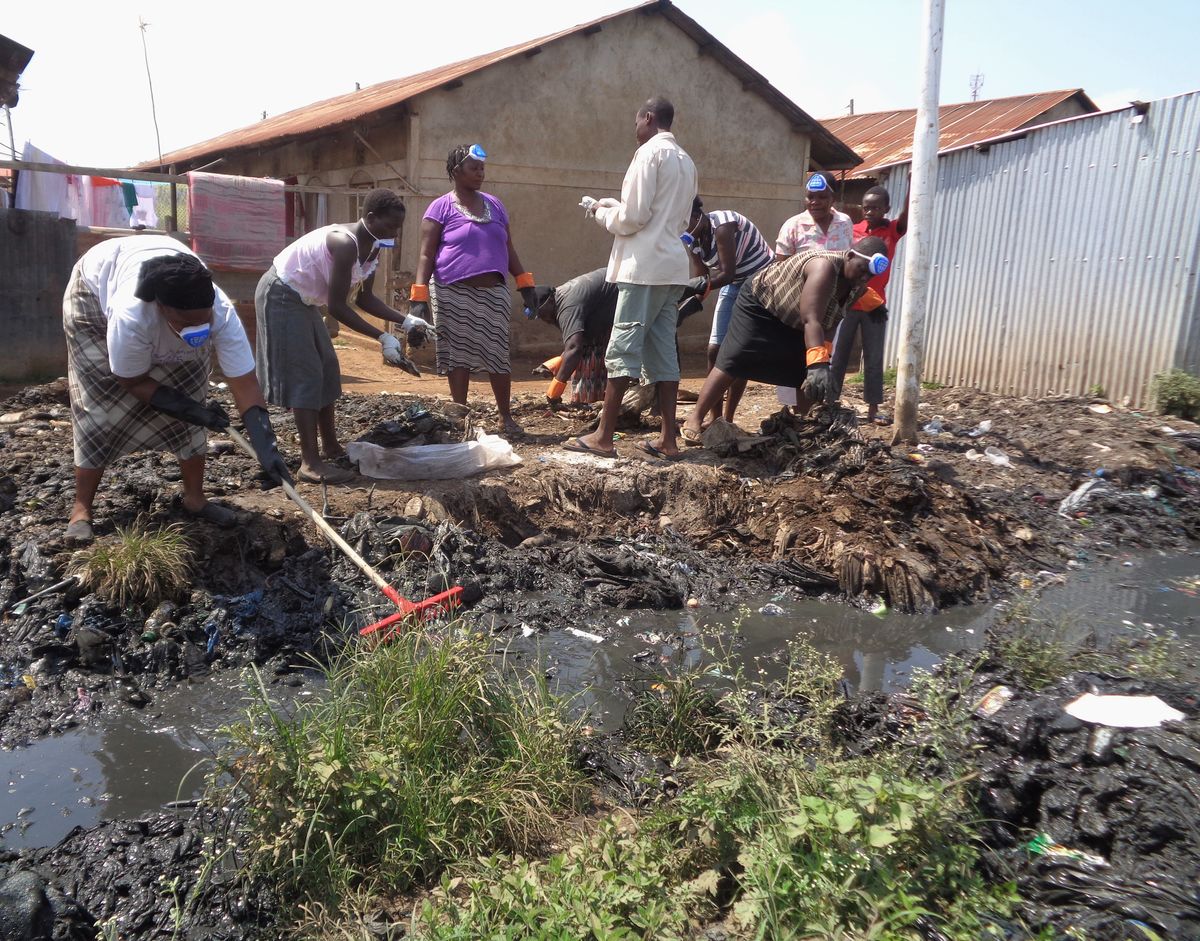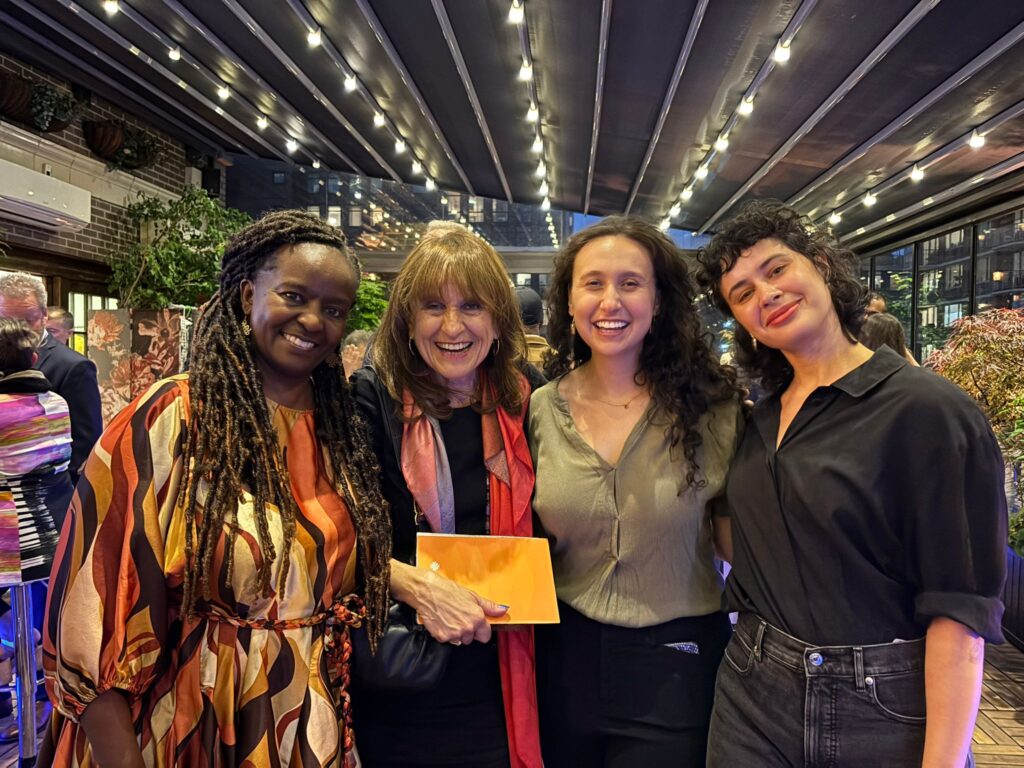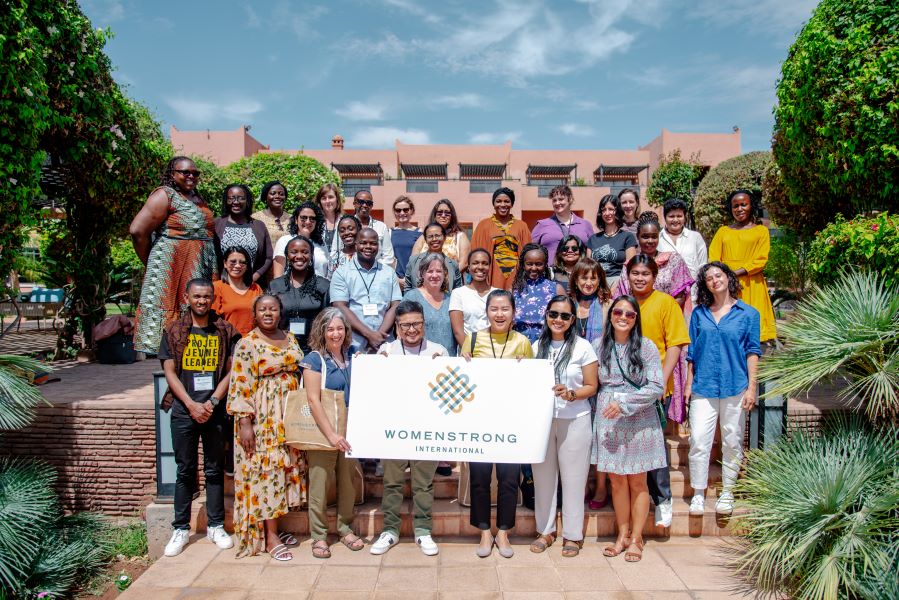WomenStrong International Showcases Social Capital Credits at WomenDeliver Conference #WD2016 on the Health, Rights and Wellbeing of Women and Girls

WomenStrong International, a consortium of non-profit organizations in five nations supporting women-driven solutions to extreme urban poverty, will host an informal dialogue on Social Capital Credits at the upcoming WomenDeliver 2016 Conference focused on the health, rights and well-being of women and girls.
Social Capital Credits is an ambitious model for promoting community-building while leveraging the multiplier effect of development dollars to alleviate poverty. The facilitated conversation, “Innovation in Income-Generation and Community-Building: Social Capital Credits in Ghana,” will take place May 17th from 18:00 – 20:00, in room B4-4 of the Bella Center in Copenhagen, during the biennial meeting. Contact [email protected] for more information or to RSVP.
WomenStrong’s Executive Director Dr. Susan M. Blaustein will speak with Dr. Geeta Mehta, Founder and President of the non-profit Asia Initiatives and creator of the Social Capital Credits (SoCCs) concept. Mme. Abenaa Akuamoa-Boateng, Founder and Executive Director of Women’s Health to Wealth, will talk about the success of SoCCs in benefiting impoverished urban women in Ghana, one of five countries where SoCCs programs are underway.
SoCCs is a simple-yet-transformative mechanism being used in communities from Washington, D.C. to Mumbai, India, and last year was among the top 10% of entrants for the Fuller Challenge, an annual competition sponsored by The Buckminster Fuller Institute to recognize and reward bold initiatives presenting comprehensive, anticipatory, integrated approaches to solving some of the world’s most complex problems (http://bfi.org/challenge).
SoCCs is a new medium of exchange that rewards tasks done by groups of people for the greater good of a community, such as garbage clean-up or tutoring. Up until now, such work went unrewarded. But with SoCCs, tasks receive points redeemable for beneficial products and services, such as school fees and health insurance. SoCCs places a value on undervalued work, serves as a catalyst for development free from reliance on money and serves as a multiplier of development dollars.
“Social Capital Credits combines practices from carbon trading, MPesa and eBay to better leverage development dollars,” Dr. Blaustein said. “We’re delighted to have two leading experts and practitioners with us to explain how SoCCs works and how others might consider introducing SoCCs programs in their own communities.”
WomenStrong has introduced SoCCs at three locations, including Kisumu, Kenya, where women removed garbage from a small plot of land that was converted into a community garden. The women then redeemed the SoCCs points earned for dozens of plastic chairs that they now rent out for weddings and other social functions within the community — converting SoCCs into a revenue-producing small business for the group.
“Social Capital Credits can energize and empower whole communities of women to become the agents of their own success and the success of their families,” said Dr. Mehta, a member of WomenStrong’s Board of Directors and consultant on the SoCCS program she created in Costa Rica, Ghana, India, Kenya and the United States. (http://www.asiainitiatives.org/) “SoCCs increases the velocity of economic activity that propels participants from a barter system into the money economy” and so should be of interest to anyone working in global development or women’s empowerment.
ABOUT ASIA INITIATIVES
Asia Initiatives leverages the power of social capital to promote healthcare, education and sustainable development, striving to bring positive change in the quality of life of people in underserved communities. With a particular focus on women and their families, Asia Initiative uses transformative methodologies and technologies to empower people to realize their full potential. For more information, visit www.AsiaInitiatives.org
ABOUT WOMEN’S HEALTH TO WEALTH
Women’s Health to Wealth (WHW) began as a tiny women’s clinic in the heart of a bustling market in downtown Kumasi and now serves hundreds of women and girls in and around Ghana’s second largest city. WHW sees health as a prerequisite to sustainable wealth creation and leverages the delivery of health services to engage women and girls in a broad array of programs that serve their needs as they strive to overcome extreme urban poverty. To read more about the programs and WHW, visit http://whwghana.org/
ABOUT WOMENSTRONG INTERNATIONAL
WomenStrong International is a consortium of non-profit organizations in five nations supporting women-driven solutions to extreme urban poverty. Through our Consortium members in Ghana, Kenya, Haiti, India, and Washington, D.C., we help thousands of women and girls meet their 6 Essential Needs for health, shelter, safety, education, economic empowerment and a functioning urban environment. WomenStrong believes the path out of poverty and toward a more just and prosperous world can be found by making women strong. For more information, visit www.womenstrong.org.




